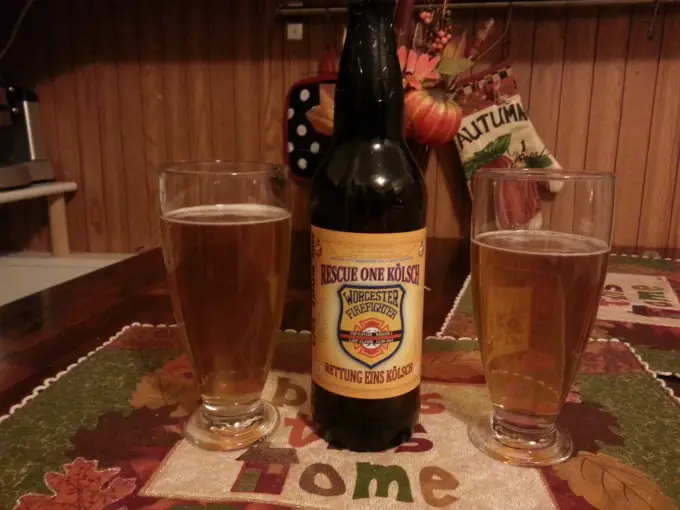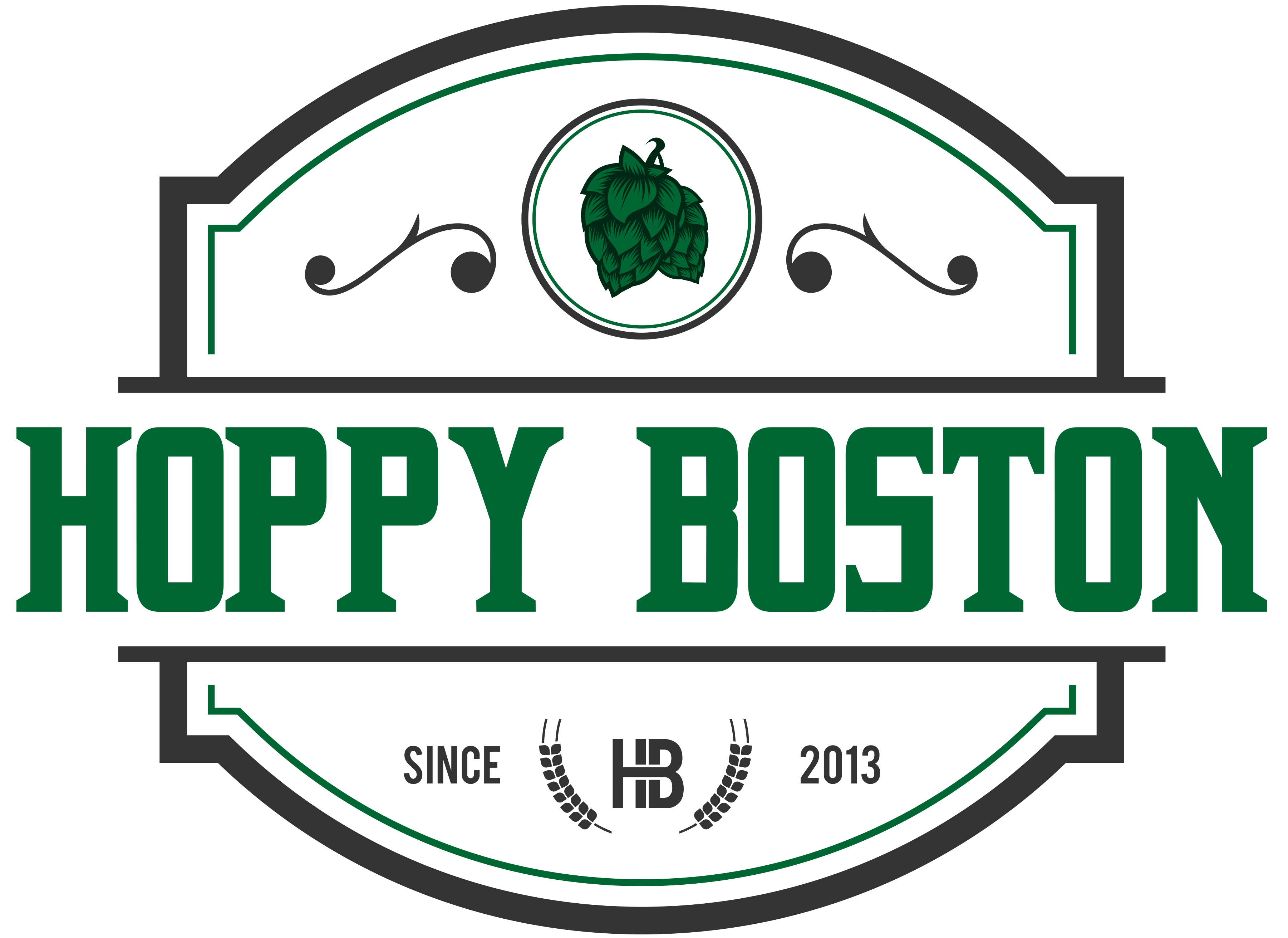I recently read an interesting article by Jeff Alworth on the beervana blog, he has decided to make a conscientious effort to write about beer and breweries that have disappointed him. He isn’t talking about being a critic for critics sake (or being one of the yahoos who love to write negative reviews of Bud Light on Untappd), but instead offering constructive criticism of breweries that are doing some things right but have significant room to improve. This can be a difficult task for beer writers, it’s fun to write about the great beers you sample, especially when you find a new favorite that hasn’t become a target of beer snob hype yet. Writing about bad/mediocre beer is tougher, most craft breweries are small businesses that are run by passionate people who care deeply about their brand and their beer, and articles that paint their product in a bad light can be damaging to their business. As more breweries open there is more great beer, but there is also more mediocre or inconsistent beer, which leads to the question, should beer writers just focus on praising great beers or also call out beers that fall short?
 This article brought me back to a conversation that I had with a friend who is also a regular reader of this blog. He pointed out that the vast majority of the beers I review are 4.0-5.0 on my five point scale. Weren’t there beers that I disliked? I had a multi-part response to this. First, most of the beers I sample with the intent on reviewing fall between solid and great. I get plenty of info from other writers and beer enthusiasts before I do stock-up runs, so I feel confident that many of the beers I buy will be tasty. I also go out on a limb and try random beers, and sometimes I do find beers that I dislike or that have distinct off-flavors. In most cases I decline to review those beers. I would guess that I have around 1-2 beers a month that I buy with the intent of writing a review and then don’t ever write up for one reason or another. Some of these beers were simply past peak freshness when I drink them, others were oxidized or have other off flavors, and many were just mediocre.
This article brought me back to a conversation that I had with a friend who is also a regular reader of this blog. He pointed out that the vast majority of the beers I review are 4.0-5.0 on my five point scale. Weren’t there beers that I disliked? I had a multi-part response to this. First, most of the beers I sample with the intent on reviewing fall between solid and great. I get plenty of info from other writers and beer enthusiasts before I do stock-up runs, so I feel confident that many of the beers I buy will be tasty. I also go out on a limb and try random beers, and sometimes I do find beers that I dislike or that have distinct off-flavors. In most cases I decline to review those beers. I would guess that I have around 1-2 beers a month that I buy with the intent of writing a review and then don’t ever write up for one reason or another. Some of these beers were simply past peak freshness when I drink them, others were oxidized or have other off flavors, and many were just mediocre.
The purpose of this blog has always been to find amazing local beers, especially beers that don’t involve online trading or waiting in crazy lines, and recommending these beers to my readers. I want Hoppy Boston to be an index of the best beers that New England has to offer. I understand that there is value in writing about beers I disliked too, and it has been a struggle making the decision to focus on beers I enjoyed instead of being critical. In the first few months of the blog I wrote a terrible review of an IPA only to sample it later and realize that the first beer was just well out of date. I felt really bad about the initial review, and from there decided to really focus on writing about the beers I enjoyed. FWIW, I later returned to the store where I bought the offending beer, they had a year old seasonal beer on display (the season was correct, but the labels had changed from the previous year). I stopped shopping at that store immediately.
It’s easy to forget that the concept of beer writing is relatively new, especially compared to writing about food or wine. Early beer writers where educators and salespeople, expounding on the merits of better beer because so many people didn’t even realize that non-macro options existed. Things have changed drastically over the last decade. When I moved to Boston after college it was rare to find a bar that had extensive craft options. You’d see plenty of Sam Adams and Harpoon, but any bar that carried Sierra Nevada, Allagash or Long Trail would be considered a “beer bar”. Now you can walk into almost any bar in the city and see a variety of styles and multiple local options. Many dives and cookie cutter chains carry multiple IPAs. Big beer and their crafty offshoots still dominate marketshare, but I don’t think there are many people who are unaware that craft beer is an option. That being said, I think there is still value in extolling the virtues of great beer, the number one reason I started following beer blogs was to find out about delicious beers I wanted to try.
 There is also a place for beer criticism. Constructive criticism can also be a positive for breweries, especially brewers who are willing to hear the criticism and use it as an impetus to improve their product. The beer field is getting more and more competitive, places that make inconsistent or mediocre beer are going to start to fail as more and more top notch breweries reach the market, expand production and hone their craft. I’ve seen a few examples where local breweries have responded well to early criticism and it’s been a boon to their businesses. I’ve also seem breweries that have refused to change and have either gone out of business or been forced to sell.
There is also a place for beer criticism. Constructive criticism can also be a positive for breweries, especially brewers who are willing to hear the criticism and use it as an impetus to improve their product. The beer field is getting more and more competitive, places that make inconsistent or mediocre beer are going to start to fail as more and more top notch breweries reach the market, expand production and hone their craft. I’ve seen a few examples where local breweries have responded well to early criticism and it’s been a boon to their businesses. I’ve also seem breweries that have refused to change and have either gone out of business or been forced to sell.
So what is the answer to the question I posed in the beginning of the article? Should beer writers be cheerleaders or critics? Like IPAs, stouts and pilsners, I think there is room for all varieties of beer writing. I am going to continue to focus my beer reviews on brews I enjoyed, that has always been the point of this blog and it’s what I like writing about. That being said, I think it is important for more of the talented writers in the beer community to mix in some constructive criticism. Any short term losses that a brewery faces after a negative article could be quickly recouped if they fix the noted problems and make consistently better beer. From there I’ll pass it to the readers: what is your opinion? Do you prefer to read praises of great beers or criticism of poor ones? Let me know your opinions here or on social media!

Personally I would appreciate a well worded criticism of what is intended to be a great brew. It still may be a beer better than your run of the mill mass produced stuff, but I think the critical opinion is a good thing. We beer drinkers are getting pretty specific on what we like (who was talking about hop varieties 5-10 years ago?) so being critical on some finer points of a particular beer is OK by me.
I try to point out small issues (imbalance, thin body) that keep good beers from being great. I have avoided the kind of reviews that point out larger flaws in a single beer or a whole brewery, but I see the value in fair criticism.
I’d rather see an honest review any day. No one benefits when legitimate criticism is withheld, certainly not the brewery that disappoints eager new potential customers, not the blogger who loses credibility, and not the consumer that bought something based on bad advice.
For me, what I want in a review is an honest take on what the reviewer tasted and why that did or did not work for them (seeing how taste is subjective) so I can judge a beer’s merits based on that. Give me the information I need to make my own opinion on whether the beer is something I want to try or not.
I think a lot of writers/bloggers do tend to give beers good reviews on the whole perhaps because they tend to gravitate towards better beers either out of experience or a desire for mass appeal. Some of my most critical reviews have been on beers I took a chance on and went into blind and some of my most glowing reviews have been on beers I knew had flavor profiles I really like. From personal experience, it’s a lot more fun writing about a beer I loved than one I hated.
I agree that it’s more fun writing about a beer you love. I try to cover flavor profile and will point out small tweaks that would improve a beer in my opinion (although I agree that taste is subjective). I’ve avoided reviews of beers that I really dislike or overviews of breweries that have consistency problems, but I see the value in this type of article.